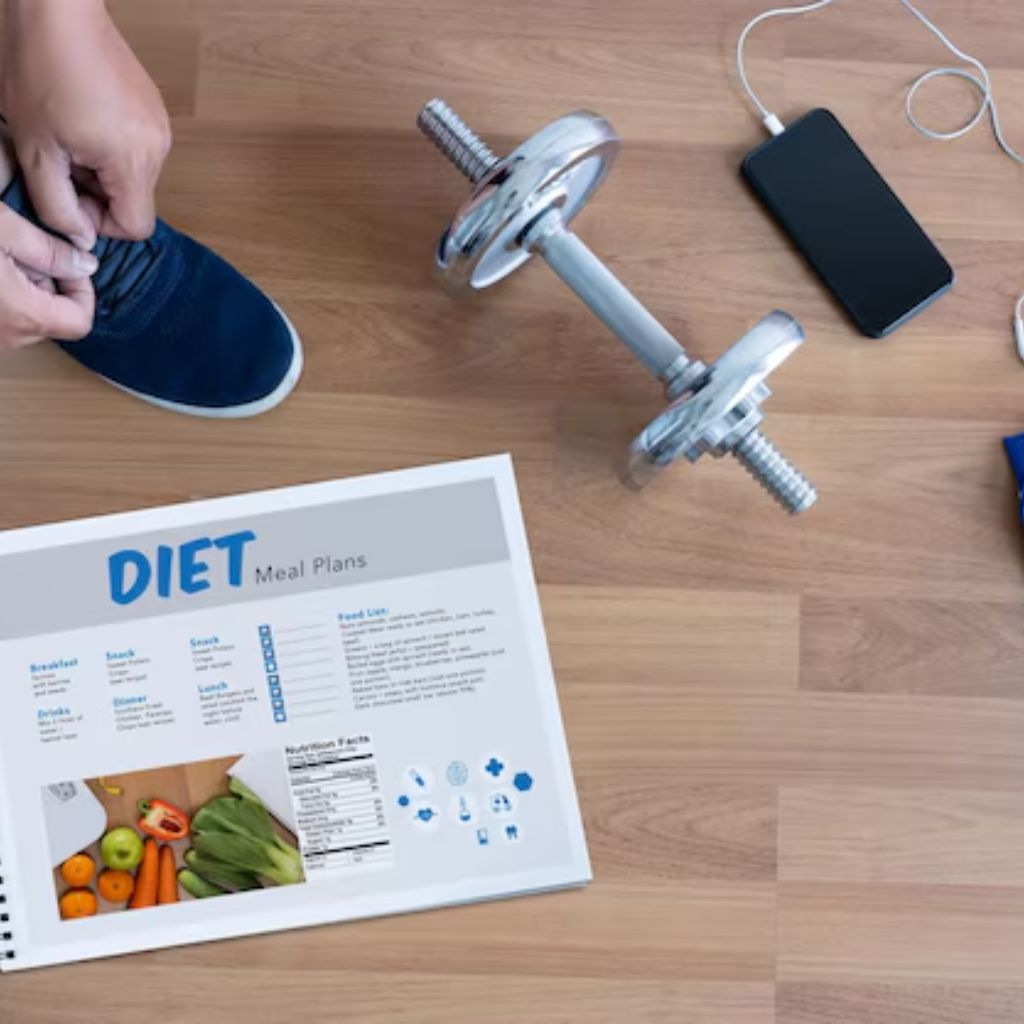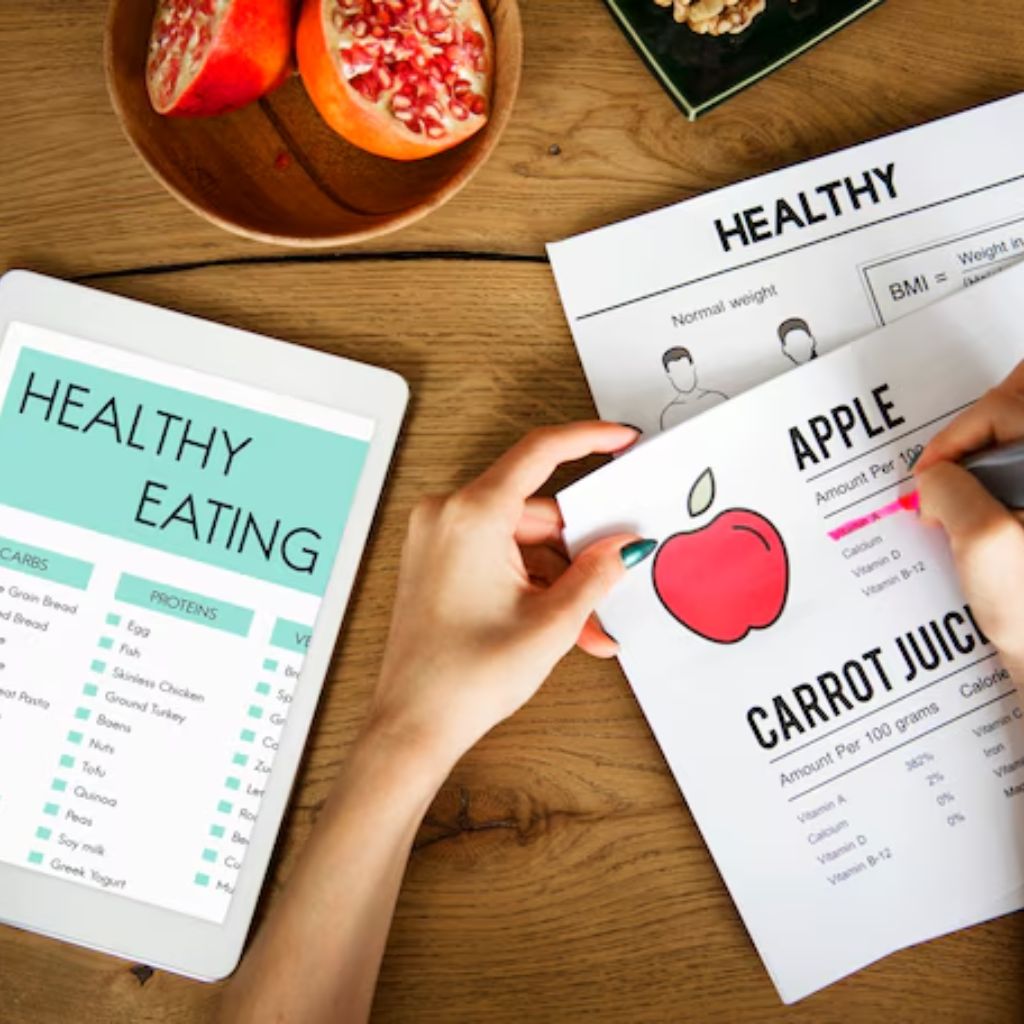If you’re diving into the world of competitive swimming, you already know that success isn’t just about hours in the pool. It’s about what you fuel your body with before, during, and after training. That’s where a Competitive Swimmers Diet Plan PDF becomes your ultimate resource. It serves as a practical guide you can download, print, and use daily to stay on track with balanced nutrition.
This isn’t simply about calories. A swimmer’s diet is all about balance, timing, and choosing the right foods to keep your body energized, support recovery, and enhance performance. Whether you’re a beginner or preparing for national-level competitions, a Competitive Swimmers Diet Plan PDF can help you streamline meal planning, optimize recovery, and push through your toughest sessions with confidence.
Importance of Nutrition for Competitive Swimmers
Nutrition is the cornerstone of swimming performance. While technique and endurance are built in the pool, your diet is the fuel that powers every stroke. Competitive swimmers train for hours daily, often with double sessions, meaning their energy demands are much higher than the average person. Without a structured diet, fatigue, slow recovery, or even injuries can creep in.
A Competitive Swimmers Diet Plan PDF ensures swimmers get the right ratio of carbohydrates, proteins, and fats. Carbohydrates replenish glycogen stores, proteins repair muscle fibers, and fats keep hormones balanced. Micronutrients and hydration also play a critical role in keeping the body functioning efficiently. When nutrition is aligned with training, swimmers see significant gains in endurance, speed, and recovery times.
In short, having a personalized diet plan is not an option—it’s a necessity. That’s why a downloadable PDF guide tailored to a swimmer’s needs can make a world of difference in structuring meals and snacks effectively.
Carbohydrates
Carbohydrates are the primary fuel source for competitive swimmers. Without them, energy reserves run low, leading to sluggish performance and slower lap times. Swimmers should focus on complex carbs such as brown rice, whole wheat bread, oats, quinoa, and starchy vegetables like sweet potatoes. These provide a steady release of energy, keeping blood sugar levels stable throughout intense workouts.
For competition days, quick-digesting carbs such as bananas, white rice, or sports drinks can provide an immediate energy boost. A Competitive Swimmers Diet Plan PDF will typically outline how to rotate between complex and simple carbs depending on the timing of training sessions and races.
Comparison: Complex vs. Simple Carbohydrates for Swimmers
| Type of Carbohydrate | Examples | Best Time to Consume | Benefits |
|---|---|---|---|
| Complex Carbs | Brown rice, quinoa, oats, sweet potatoes | 2–3 hours before training | Provides long-lasting energy |
| Simple Carbs | Bananas, white bread, sports drinks | 30–60 minutes before or during training | Quick energy boost, prevents fatigue |
Proteins
Protein is essential for repairing muscles that break down during training. Without adequate protein, recovery slows, leaving swimmers fatigued and vulnerable to injury. Lean sources like chicken breast, fish, turkey, eggs, and plant-based options like tofu, beans, and lentils should be staples in any Competitive Swimmers Diet Plan PDF.
Swimmers should aim for protein-rich meals within 30 minutes to two hours after training to maximize muscle repair. A smoothie with whey protein, berries, and almond milk is an excellent quick option. For dinner, grilled salmon with quinoa and broccoli provides a balance of protein, carbs, and micronutrients.
Healthy Fats
Many swimmers overlook fats, but they are vital for long-term performance. Healthy fats found in avocados, nuts, seeds, and olive oil promote hormone production, improve brain function, and provide slow-burning energy reserves. Unlike carbohydrates, fats fuel endurance, which is especially useful during longer practice sessions or distance events.
A well-structured Competitive Swimmers Diet Plan PDF should include 20–30% of calories from healthy fats. For example, adding chia seeds to breakfast oats or including a drizzle of olive oil over roasted vegetables boosts both nutrition and flavor.
Timing of Meals
Meal timing can make or break a swimmer’s performance. Eating too close to a workout can cause discomfort, while eating too early may lead to an energy dip. That’s why swimmers need to strategically plan their meals.
- Pre-Workout: A balanced meal with carbs and some protein about 2–3 hours before training (e.g., oatmeal with banana and nut butter).
- During Training: Quick-digesting carbs like sports drinks or fruit if sessions are longer than 90 minutes.
- Post-Workout: A meal rich in protein and carbs within 30–60 minutes to replenish glycogen and repair muscles (e.g., chicken sandwich on whole-grain bread).
A Competitive Swimmers Diet Plan PDF organizes meal timing, ensuring that swimmers never run into energy crashes during crucial training or races.
Hydration
Hydration cannot be overlooked. Maintaining fluid balance prevents dehydration, which can negatively impact performance. Drink water throughout the day and incorporate electrolyte-rich beverages during intense training sessions.
By focusing on these nutritional aspects, competitive swimmers can enhance their training and overall performance. You’ll find that a dedicated approach to your diet can lead to remarkable improvements in your swimming career.
Key Components of a Swimmer’s Diet
Understanding the key components of a swimmer’s diet is essential for optimizing performance and recovery. A balanced approach ensures consistent energy levels, effective muscle repair, and overall health.
Swimmer’s Diet Macronutrients Overview
Macronutrients play a critical role in a swimmer’s diet. Carbohydrates serve as the primary energy source, fueling your workouts and competitions. Focus on complex carbohydrates found in whole grains, fruits, and vegetables for sustained energy release. Proteins are vital for muscle growth and repair. Include lean meats, dairy, legumes, and plant-based proteins in your meals, particularly after training.
Healthy fats shouldn’t be overlooked—they contribute to hormone production and cellular health. Incorporate sources like avocados, nuts, and olive oil for balanced nutrition. Aim for a diet that emphasizes a 50-60% carbohydrate intake, 15-20% protein, and 20-30% healthy fats for optimal performance.
Swimmer’s Diet Micronutrients That Matter
Micronutrients also significantly impact a swimmer’s diet. Vitamins and minerals are essential for energy production, immune function, and muscle contraction. Key players include calcium, which supports bone health; iron, crucial for oxygen transport; and magnesium, vital for muscle function. Ensure you’re getting plenty of vitamin D for calcium absorption and overall health. Include colorful fruits and vegetables in your meals for antioxidants, which protect against cellular damage and reduce inflammation.
Consuming a variety of foods ensures you meet your daily micronutrient needs. Consider fortified foods or supplements to fill potential gaps, especially during intense training phases. Prioritizing micronutrients enhances your overall well-being, leading to improved performance in the pool.
Sample Competitive Swimmers Diet Plan
A healthy diet plan significantly benefits competitive swimmers. Below is a structured sample diet plan that aligns with your training goals.
Daily Meal Breakdown
| Meal | Foods | Portion Size |
|---|---|---|
| Breakfast | Oatmeal with berries and honey | 1 cup |
| Snack | Greek yogurt with mixed nuts | 1 serving |
| Lunch | Grilled chicken, brown rice, veggies | 6 oz, 1 cup, 1 cup |
| Snack | Apple with almond butter | 1 apple, 2 tbsp |
| Dinner | Salmon, quinoa, and steamed broccoli | 6 oz, 1 cup, 1 cup |
| Evening Snack | Cottage cheese and pineapple | 1 cup |
Each meal contains necessary nutrients. High carbohydrate content fuels your workouts. Protein aids muscle recovery, while healthy fats promote overall health. This diverse meal plan covers the essential macronutrients needed for optimal performance.
Pre- and Post-Workout Nutrition
For pre-workout nutrition, consume a carbohydrate-rich meal 2-3 hours before training, such as a banana with peanut butter or a smoothie with spinach and fruit. This intake boosts energy levels and prepares your body for intense practice.
Post-workout meals should occur within 30 minutes. Opt for protein and carbohydrates to enhance recovery. A protein shake with mixed berries, or a turkey sandwich on whole-grain bread, can effectively replenish energy stores and repair muscles.
Proper pre- and post-workout nutrition significantly impacts performance and recovery. Implementing these strategies enhances training effectiveness while supporting your competitive swimming journey.
Tips for Meal Planning
Meal planning plays a crucial role in a competitive swimmer’s diet plan. Thoughtful planning ensures you get the right balance of nutrients for performance and recovery, making mealtime efficient and beneficial.
Grocery List Essentials
Grocery lists are vital for efficient meal planning in a competitive swimmer’s diet plan. Stock up on whole grains like brown rice and quinoa for sustained energy. Include lean proteins such as chicken, turkey, and fish to aid muscle repair. Don’t forget the importance of fruits and vegetables; they provide essential vitamins and minerals. Opt for a variety to ensure you meet micronutrient needs. Healthy fats from sources like avocados, nuts, and olive oil support overall health and hormone production. Keeping your pantry stocked with legumes like beans and lentils adds protein and fiber. Planning your meals around these essentials keeps your nutrition on track.
Preparing Meals in Advance
Preparing meals in advance transforms a competitive swimmer’s diet plan into a practical routine. Batch cooking staple items, like whole grains and roasted vegetables, saves time during busy training weeks. Cook lean proteins in bulk, then portion them into containers for easy access. Prepping snacks, like energy bars or fruit mixes, enables you to refuel quickly before or after workouts. Consider assembling breakfast options, like overnight oats or smoothies, the night before. This strategy ensures you maintain energy levels and promotes recovery without the stress of last-minute cooking. By planning ahead, meal times become enjoyable rather than a hassle, supporting your overall performance goals.
Conclusion
Embracing a well-structured diet plan can truly elevate your competitive swimming journey. With the right balance of carbohydrates proteins and healthy fats you’ll be fueling your body for peak performance and speedy recovery.
Utilizing the diet plan PDF as your guide makes meal planning a breeze. You’ll find that prepping meals in advance not only saves time but also keeps you energized throughout your training.
Remember hydration is key so keep that water bottle close. By making nutrition a priority you’re setting yourself up for success in and out of the pool. Dive in and enjoy the benefits of a tailored diet plan that supports your goals and passion for swimming!
Frequently Asked Questions
What should a competitive swimmer’s diet include?
A competitive swimmer’s diet should include a balanced mix of 50-60% carbohydrates, 15-20% protein, and 20-30% healthy fats. Focus on complex carbs like whole grains, fruits, and vegetables for energy, lean proteins for muscle repair, and healthy fats for overall health.
Why is meal timing important for swimmers?
Meal timing is crucial for swimmers to optimize performance and recovery. It’s recommended to eat a pre-workout meal 2-3 hours before training and a post-workout meal within 30 minutes to 2 hours after exercise to replenish energy and support muscle recovery.
How does hydration affect a swimmer’s performance?
Hydration is vital for swimmers as it prevents dehydration, which can negatively impact performance. Maintaining proper fluid levels helps enhance endurance, focus, and overall athletic performance during training and competition.
What are the key micronutrients for swimmers?
Key micronutrients for swimmers include calcium, iron, and magnesium. These nutrients support energy production, immune function, and muscle contraction, which are essential for optimizing performance and recovery during intense training.
How can swimmers plan their meals effectively?
Swimmers can plan their meals effectively by creating grocery lists to ensure they have essential items like whole grains, lean proteins, fruits, and vegetables. Preparing meals in advance and batch cooking staple items can save time and enhance nutritional balance during busy weeks.



